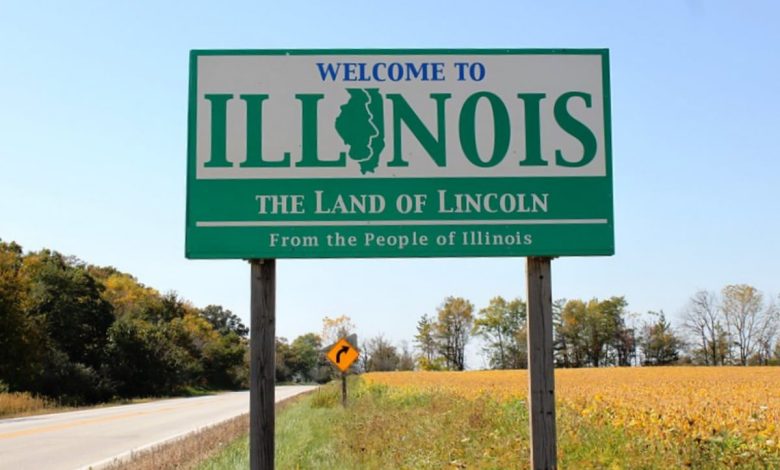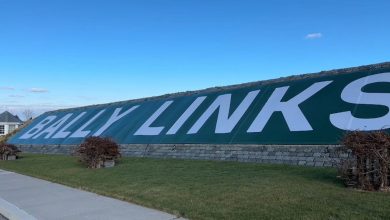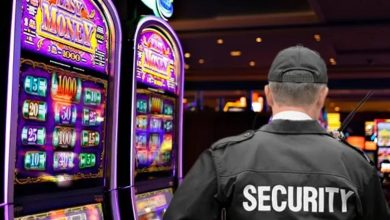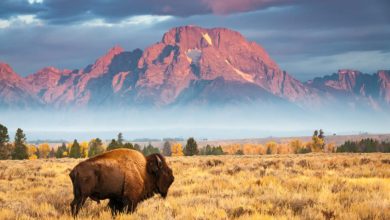Extra States Might Elevate Sports activities Betting Taxes, Says Analyst

Illinois not too long ago handed a graduated tax scheme for on-line sportsbook corporations working within the state, which means the most important by income pays considerably extra taxes than their smaller counterparts.
A welcome to Illinois signal. An analyst says the state’s latest sports activities betting tax hike might encourage different states to observe go well with, however the Illinois mannequin in all probability gained’t be copied. (Picture: OZinOH/Flickr.com)
That tax hike, which matches into impact on July 1, sparked fears of a contagion by which different cash-strapped states would observe the lead of Illinois and probably elevate iGaming and sports activities wagering taxes to fund different wants. A minimum of one analyst believes that whereas it’s doable, maybe doubtless, that different states will enhance levies on sports activities betting, the excellent news for operators is that the Illinois mannequin isn’t prone to be mimicked in a widespread style.
In a brand new report back to shoppers, Stifel analyst Jeffrey Stantial identified that whereas gaming corporations can take care of increased taxes by paring advertising and marketing and promotional expenditures, buyers are extra pensive. Therefore, one-month declines by DraftKings (NASDAQ: DKNG) and FanDuel mum or dad Flutter Leisure (NYSE: FLUT).
Our key takeaways embody: 1) extra OSB tax charge hikes are prone to happen, although much less often than feared with IL’s graduated construction unlikely to proliferate, 2) numerous worldwide case research point out the vast majority of contribution revenue affect from a modest efficient tax charge hike doubtless proves mitigable for scaled operators, and three) unfavorable sentiment shifts round tax hike danger could yield enticing shopping for alternatives for DKNG given a continued upside bias to estimates,” wrote Stantial.
Underneath the brand new tax scheme in Illinois, FanDuel and DraftKings, the 2 largest on-line sportsbook operators within the US, will see their tax charges surge to 37% and 36%, respectively, from the present degree of 15%.
The Good, Unhealthy, and Ugly of Sports activities Betting Tax Outlook
Some buyers are involved that different states will likely be impressed by Illinois. Nonetheless, a large sports activities wagering tax hike proposed in Massachusetts quickly after the Illinois enhance was accredited didn’t advance, and New Jersey’s not too long ago proposed funds didn’t embody a sports activities betting tax enhance. For now, a minimum of, that allays fears that New Jersey is primed to spice up sports activities wagering levies.
However as Stantial noticed, it’s not simply the specter of current sports-wagering states lifting taxes. Buyers are probably rattled by the concept when new states approve iGaming, sports activities betting, or each, they’ll make use of increased tax charges than the business is accustomed to.
Presently, Delaware, New Hampshire, New York, and Rhode Island apply a 51% tax to sports activities betting, with Pennsylvania and the very best ranges in Illinois subsequent on the checklist. On the brilliant facet, boosting sports activities betting taxes might compel some states to approve on-line casinos, probably boosting the quantity in that fold from the present six.
“We consider OSB tax charge hikes could function a precursor for renewed iCasino growth efforts, which might present extra significant tax income uplift,” added Stantial.
How Operators Can Cope with Larger Sports activities Betting Taxes
As famous above, the first avenue by which operators are prone to take care of increased taxes in Illinois is to scale back promotional spending there. Stantial famous that in a base case state of affairs, 70% of the revenue pinch operators endure by a theoretical 10% tax enhance in any state might be offset by decrease promo expenditures.
Concerning different states that would raise sports activities betting taxes over the close to time period, the checklist is brief however comprised of marquee jurisdictions.
“Pennsylvania and Michigan seem the one potential candidates to contemplate tax hikes among the many restricted states with CY24 legislative periods nonetheless ongoing,” concluded the analyst.





